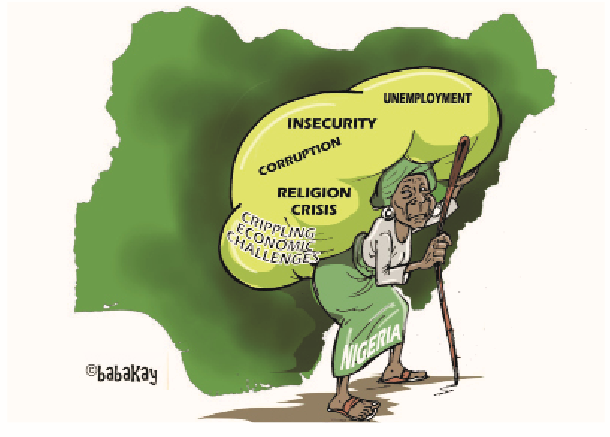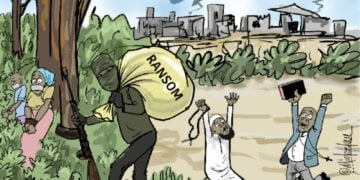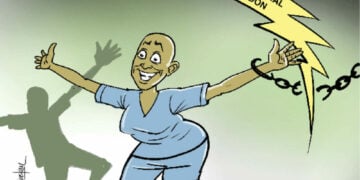Perhaps, because we have suspended the teaching of history in our schools and since about 70 percent of the nation’s population are under 30 there is the need to remind them that on October 1, 1960, Nigeria gained independence from British colonialism.
Even though three days from today will be yet another anniversary of this freedom, the current state of the nation raises questions about the relevance of celebrating this milestone.
The federal government, in a commendable move, has opted for a low-key celebration for the 63rd independence anniversary. This decision aligns with the prevailing sentiment among many Nigerians. Why should we celebrate when the majority of our citizens struggle to survive due to the crippling economic challenges exacerbated by ineffective leadership spanning successive administrations and made worse by the current administration?
Seemingly intractable challenges
Over six decades after gaining independence, Nigeria still grapples with fundamental issues that were being addressed by early post-independence leaders before military rule intervened. Ironically, even during periods of military governance, the situation was not as dire as it is today. Corruption, unemployment, poverty, and skyrocketing prices of essential commodities have left us pondering whether we’ve regressed rather than progress. As a matter of fact, most Nigerians believe, and may be rightly so, that the nation is in a reverse gear.
Consider the depreciation of our currency, the Naira, against the US Dollar, compared to the 1980s. The alarming gap and the fact that the nation is heavily dependent on income from oil in a dollar-controlled market speaks volumes about the economic challenges we face today.
Nigeria, an oil-rich nation, lacks a functional refinery and exports crude oil while importing refined products, weakening the Naira further. Despite its abundant arable land the country struggles to feed its citizens, relying heavily on food imports.
Shockingly, in 2022 alone Nigeria spent a staggering N1.9 trillion on food imports, a five percent increase from the previous year. Over six years, the nation accumulated a food import bill exceeding N7 trillion. This has exposed serious doubt about the nation’s ability to achieve sustainable food security and eradicate hunger, a fundamental goal of the Sustainable Development Goals (SDGs) 2030.
The food crisis intertwines with the escalating rate of unemployment and poverty, contributing significantly to the worsening insecurity. According to the National Bureau of Statistics, over 130 million Nigerians are living in multi-dimensional poverty, with 63 percent of the population, primarily in rural areas, trapped in extreme poverty. More than 20 million of these individuals are facing severe hunger, according to the World Food Programme.
That a resource rich nation with arable land suitable for cultivation of different food and cash crops is facing an existential threat posed by hunger, no doubt, defies logic. But that is the story of Nigeria where prolonged activities of terrorists and sustained farmers-herders clash are having a telling impact on food production, 63 years after independence.
Unfortunately, there is nothing to suggest that we are any way near getting a solution to the myriad of challenges confronting the nation.
Nothing to celebrate
How can we be talking about independence anniversary celebration when after sixty years we have an intolerably high number of children of school age outside the four walls of the classroom? As at the last count we have no fewer than 15 million of such children, with a regional/geopolitical zone breakdown as follows: North West (8.33 million); North East (3.72 million); North Central (1.81 million); South South (700,000) South East (390,000) and South West (1.19 million).
A nation whose leadership has made life undeservedly harsh for the youths so much so that japa (emigration) has become the norm, with the youths leaving the country in droves because of mounting unemployment and poverty which have made it impossible for them to realise their full potential, has no business celebrating independence.
We cannot be commemorating independence anniversary with fanfare when the government has failed woefully, or better still, outrightly refused to combat terrorism.Terrorists kill, attack and displace communities, rape and abduct residents, and insist on being paid ransom with an audacity that leaves one wondering if we are not in a banana republic. As I write this, some students of Federal University Gusau in Zamfara, one of the states that have been bearing the worst brunt of insecurity, are being held by these terror elements.
The challenges are multi-faceted and not limited to the education system, healthcare, infrastructure, and the alarming rise in insecurity. The nation grapples with terrorism, crude oil theft, economic sabotage in the face of monumental corruption in high places, all of which continue to undermine our economy.
Existential threats?
Times like these remind one of the existential threats staring us both as a nation and as a people, and test our faith no matter how incurably optimistic one strives to be.
Only time will tell if the present administration would provide the renewed hope the nation desperately needs. But that, in all modesty, is doubtful.
In the face of these daunting challenges, it is hard to justify celebrating independence when millions of school-age children remain outside classrooms, when terrorism ravages communities, and when corruption festers unabated.





